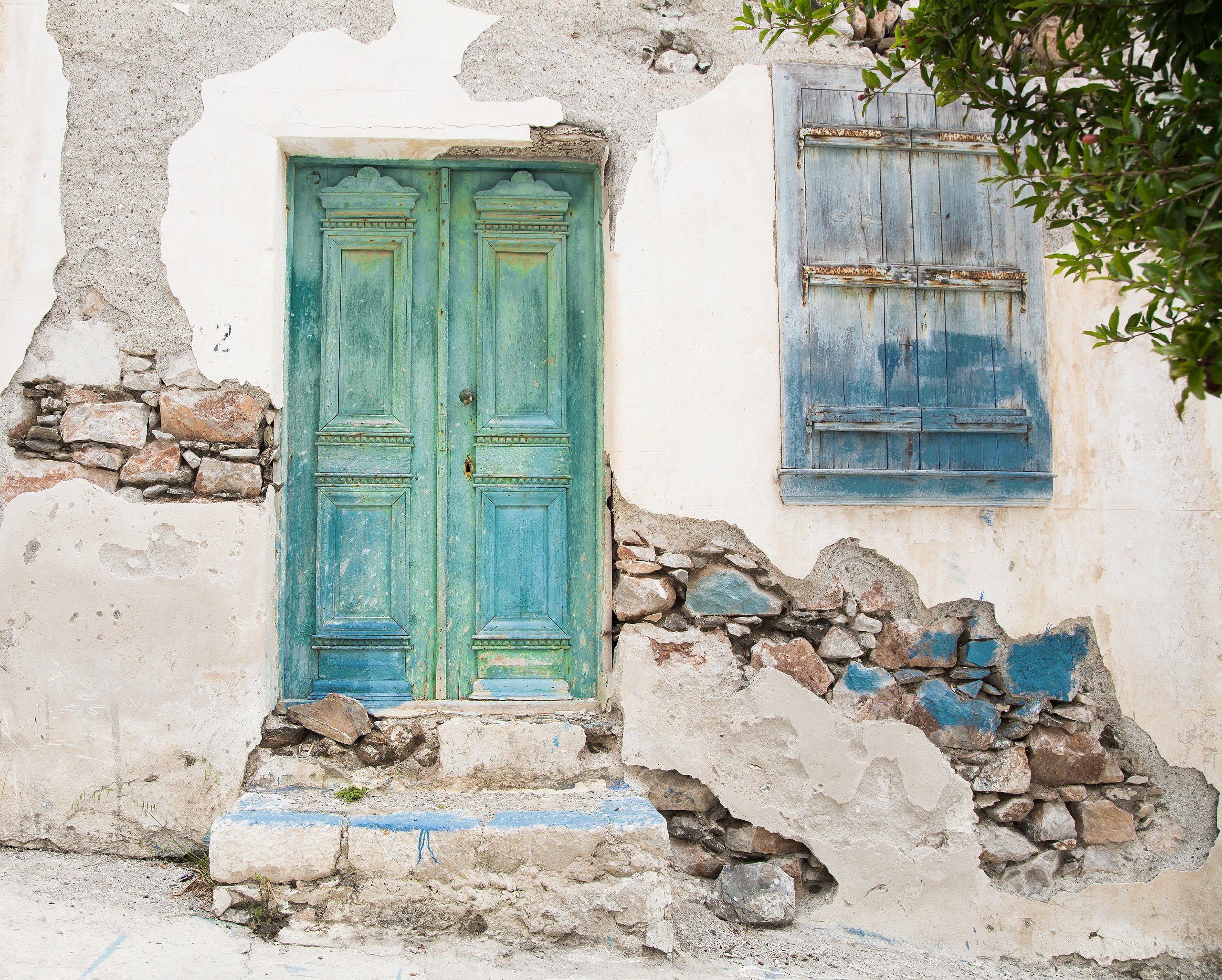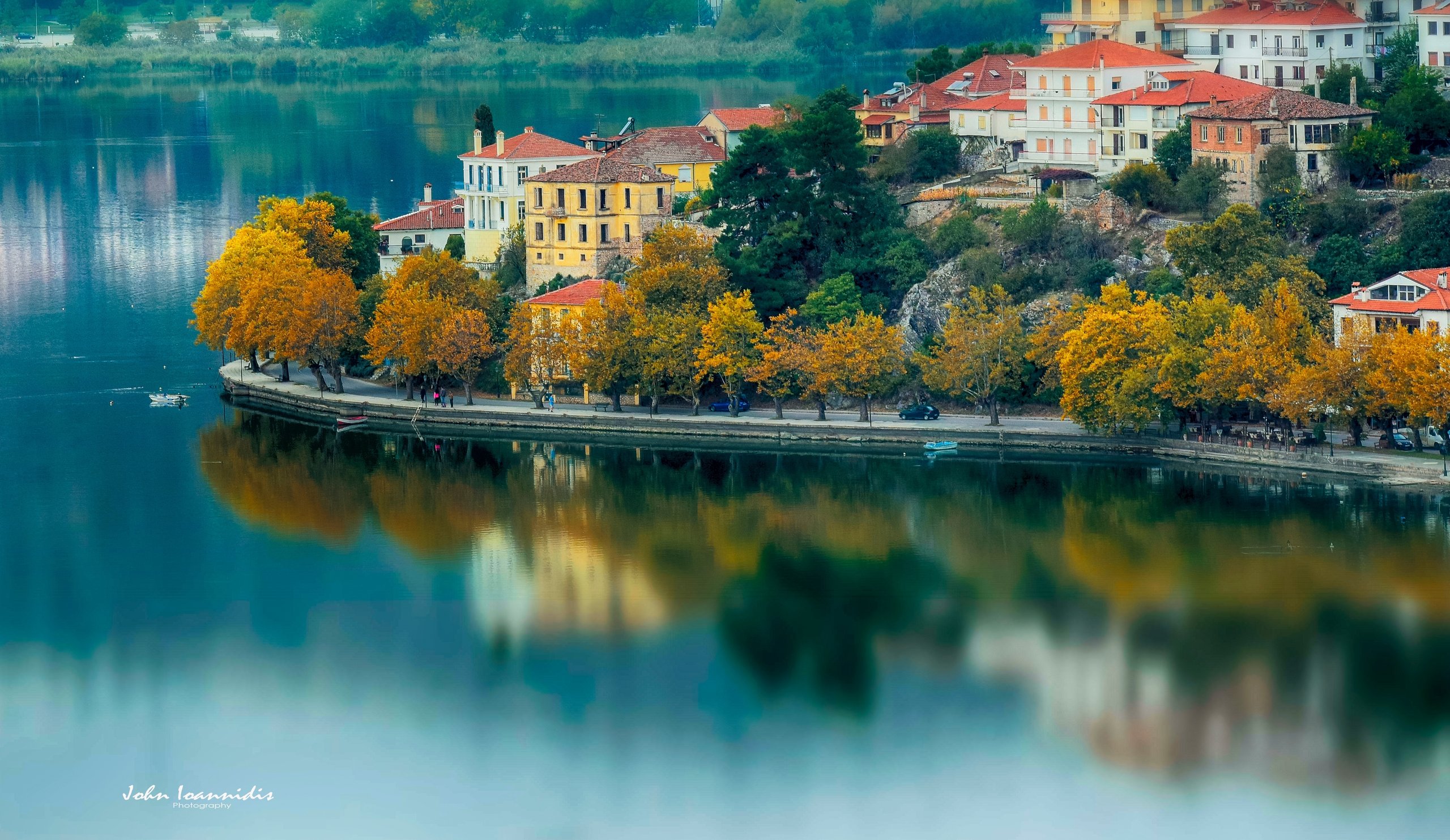Dreaming of building your perfect home in Greece? Our writer Julia explains how to navigate planning permission, what to check before buying land or a ruin and which experts you’ll need on your side.
Getting planning permission to build your dream home in Greece can be straightforward if you choose your plot carefully and employ experts to check it out thoroughly. The same applies to buying an existing house that needs structural work or enlarging.
Download the Greece Buying Guide
Greece has so many plots of land for sale with outstanding panoramic views. It’s so easy to fall in love with a location and start picturing the house of your dreams, with windows looking out at an amazing vista. Imagine being able to have the new kitchen you have always wanted, an outside dining area and a swimming pool!
But before you get carried away in the excitement of it all, there are few things that need to be checked out first. Not least, whether the Greek authorities will allow you to build on that plot.
In Greece, building regulations can change at the drop of a hat, and vary from place to place. Therefore, investigations should be done by experts with up-to-date knowledge of the local authority rules. You don’t want to rush in and be left with a plot of land you can do nothing with.
Planning permission vs building permit
Planning permission establishes what and if you can build, and the building permit details how you build it. In Greece, planning permission for major building work comes under the heading of a “Full Building Permit” (Oikodomiki Adeia), and approval for a simple job is referred to as “Small-Scale Works” (Egkrisi Ergasión Mikrís Klímakas).
What to check before you buy land or a ruin
Before buying a plot of land to build on or extending an existing building, there are several technical and legal due diligence checks that should be done. It should not be assumed that you will be able to build on the plot or install a swimming pool. So, you need to know these things before you hand over a deposit.
Checks before purchase include:
Location
Find out if the plot is considered to be within a settlement (“Ikopedo“) or outside a settlement (“Agrotemahio“). This can affect how easy it might be to get permission to build.
Topography
Check the topography plan matches what you are being told is included in the plot. Mistakes can happen, with boundary lines placed incorrectly.
Certificates
Make sure it has an archaeological and forestry certificate. If the land is considered to be forest land, you won’t be able to build on it, even if it has no trees. If it’s near an archaeological site, you might be able to get a special permit, but it’s not guaranteed and will take longer.
Size allowed
Get confirmation from the local authority that the land can be built on, and what size they allow on that size plot.
How long it takes
Ask how long it will take to get a permit to build on that plot.
Building costs
Get several quotes for the cost of the materials and work needed. This will come out of your budget and so will affect the offer you decide to make.
Road access
Does it have road access? And who owns it? Does the plot have right of way?
Existing buildings
Obtain proof of legality of any existing building.
Current owners
Verify who the owner is, or owners are – in which case they must all agree to the sale.
Debts
Are there any debts? Be sure to check the tax history and whether any fines have been issued.
Requirements
Find out what requirements must be met for the local authority to consider giving planning permission on the plot. These might include:
- Minimum size of plot – typically 4,000 square metres on plots outside town planning zone. The size of property allowed will vary, but on this size plot you might hope to be allowed a 186sqm house.
- The buildable limit – This will be different on plots within the town planning area. Each individual town zone will have a specific coefficient (e.g. 0.4 to 2.4) which, when multiplied by the plot area, gives the maximum total floor area you can build.
- Minimum frontage on road – The authorities will specify the minimum amount of frontage the plot must have on an officially recognised public road. This could be a minimum of 25 metres. A piece of land down a long dirt track isn’t going to be acceptable.
Restrictions
- Distance from road/shore – There are restrictions on the distance the house can be built from a main road and shoreline.
- Distance from boundary – Generally, it’s required that a house out of town is at least 15 metres from the plots boundary.
- Style, height and materials – For example: The authorities might specify a height of four metres for a single-story building and seven and a half metres for two storeys. If the house is first line to the sea there will also be a limit to the number of floors allowed.
- Distance apart – If building several houses on one large plot, there are restrictions on the distance they are apart, and there may be specifications for how the buildings are joined together.
Which experts will I need?

Speak to a Greece property expert
You will need:
A civil engineer
They can check you can build on the plot and investigate building regulations. They also produce Legality certificates and energy performance certificates for houses.
An architect
Architects are responsible for designing a building that meets building regulations. Licensed architects and engineers prepare the plans, designs and other required documentation. They can submit these documents electronically and manage the administrative process through the Technical Chamber of Greece (My TEE). Then it is the City Planning Agency at the local municipal offices that grants the planning permission.
A property lawyer
A property lawyer firstly protects your interests by checking paperwork and legalities. They will inspect the deeds, ownership, debts, zone regulations, as well as drafting contracts.
Local knowledge
In addition, you could ask some questions to locals and expats on social media or in person. They will be able to warn you who not to deal with. Those who have been through the process themselves are generally happy to share their experiences of local authorities, tradespeople and where to purchase materials. Although their information might be out of date, you can get some indication of how long it takes and how much it costs in that particular area.
Do I need full planning permission?
A full building permit is required for major construction projects such as:
- Building a new house
- Extending an existing house
- Making structural changes that affect the building’s stability
- Earthworks that excavate deeper than 0.8 metres
- Construction of swimming pools
- Retaining walls.
How long does it take to get planning permission in Greece?
Processing times vary, but generally it takes up to 45 working days, provided all necessary documentation is complete and compliant with current legislation.
What factors can delay planning permission in Greece?
Popular area
The Greek government is cracking down on illegal construction in popular areas, like Mykonos, leading to a suspension or lengthy reviews of new permits.
Strict regulations
Municipalities with strict buildings regulations, such as Chania (Crete), Corfu’s old town and Oia ( Santorini) tend to have longer waiting times for planning permission. However, in areas with strict rules, you are less likely to find a monstrosity of a building pop up in front of your house.
Listed historic building
Buildings designated as historic monuments are protected by law. There will be extra regulations on these houses. The Greek government website has a tool, whereby you can search a postcode address and see if it is on their list of protected buildings (note that the webpage is in Greek).
Protecting the environment
Restrictions on building near historic sites, archaeological sites, close to the coastline and areas of natural beauty can require extra paperwork.
Gathering documents
In some cases, it can take longer to simply gather together all the documentation required for the application. I have heard of one couple whose planning permission for an extension took seven months, even with them going to offices personally to collect documents for the engineer.
How long is the full building permit valid for?
On residential properties, the permit is typically valid for four years.
How much does getting planning permission in Greece cost?
According to a building cost calculator on the website of a Greek construction company called Velikat, a building permit for 100m2 costs around €16,000. In addition, there may be VAT, owner insurance, a state fee and a fee for inspection services. You will also want a detailed quote from the architect and engineer for the work they do.
Do I need planning permission for small jobs on an existing building?
For projects that don’t affect the structure of the building or increase its volume you might still need a small-scale permit. For example:
- Interior renovations that do not alter load-bearing walls
- Repairing facades, such as stone or plaster cladding
- Using scaffolding to paint the outside
- Pergolas on terraces, rooftops and balconies (usually over 50m2)
- Sheds up to 8m2
- Demolition of dangerous structures
- Boreholes
- Thermal insulation
- Solar panels or wind turbines
- A small pool (under 50m2) without a permanent or heavy structural intervention
How long does it take to get a small-scale permit?
It usually takes around three to four weeks to prepare the documents, submit and get approval. A small-scale building permit is usually valid for one year, with the possibility of renewal.
Are there any jobs that don’t need planning permission in Greece?
You don’t generally need planning permission to paint the interior, do minor repairs inside or paint the exterior if its reachable without scaffolding. However, this should always be verified by a qualified architect or civil engineer, as unauthorised works, can lead to fines or difficulties in selling the property later. Anyone can report you for doing illegal work.
What improvements don’t need planning permission?
Interior repairs and decorating generally don’t require planning permission. This includes painting, putting up cupboards, flooring and door and window repairs. That is as long as it doesn’t affect the structure of the building. Small fixes on the outside should also be OK, like fixing a loose tile.
Sometimes there are environmental, cultural, safety or other requirements that you might not know about. If you have a neighbour who questions what you are doing, it can be useful to have a certificate confirming you either don’t need permission or have a permit. You can pay the engineer to research the local rules and issue a certificate stating that the work you are doing is approved.
Can I repaint my shutters any colour I like?

Many Greek seaside villages look so pretty with their whitewashed walls and blue shutters. It would spoil the whole look if someone came along and painted theirs bright pink. To maintain the traditional appearance of Greek towns and villages the local authorities often restrict what colours you can use.
Can I install a pool in Greece?
Having your own pool on a hot day is absolute bliss. Even a dip in a small pool is a lovely way to relax and cool down. A small above ground pool under 50 square metres, without a permanent structure usually only requires a small-scale permit.
However, despite the small size, if you make it a permanent structure that requires a lot of heavy construction work or has a concrete base, it will need a full building permit. Larger pools need a full building permit, for which you’ll need to pay an architect or engineer for the plans. As owning a big pool is considered a luxury, each year you will also have to pay a luxurious living tax.
What renovation jobs might need planning permission in Greece?
- Architectural replanning of the interior space, often to include additional bathrooms.
- Rebuilding of cracked walls. Bearing in mind an old stone house can have walls a metre thick with rubble at the centre, this is a big job. We had a first-floor wall that had a crack down it, which had to come down and be rebuilt.
- Old stone houses may need the roof replacing with new timbers and terracotta tiles. Our whole roof needed doing, which meant we also had to have an earthquake-proof concrete sill with metal running through it built around the top of the walls. As there were height restrictions in the town, part of the top of the wall had to be taken down first before the required amount of sill could be put on top.
- You may want to enlarge the property to add extra bedrooms and bathrooms. If you’re hoping to build up a level, the lower level must have the constructional capability to take it.
- The addition of solar panels and swimming pools: if you are having new electrics and plumbing installed, these could be done at the same time.
- Improvement of the architectural appearance of the building, such as painting the stone, plastering and painting.
- Replacement of windows and doors or changing their location. The previous owner of our house had built a first-floor extension as an art studio and put in a large, ugly metal-framed window. So, we replaced it with two wooden windows with shutters to match the rest of the house.
Recommendations
When looking at land in the countryside, I’d suggest, concentrating on plots bigger than 4,000m2, which have a minimum of 25 metres frontage on a recognised public road. Renovating a house within the zone of a settlement is a great option if you want a property with character that’s close to amenities. Property prices start at around €50,000.
Don’t feel rushed into putting in an offer; make sure planning permission will be allowed first. There is a big selection of plots of land for sale on Your Overseas Home. Land prices start at around 50,000.
While I have made every effort to provide accurate information regarding planning permission in Greece, regulations and prices do change. They can also vary depending on the location. Therefore, hiring a property lawyer or engineer who can do all the local checks is the best route to achieving your dream home in Greece.








